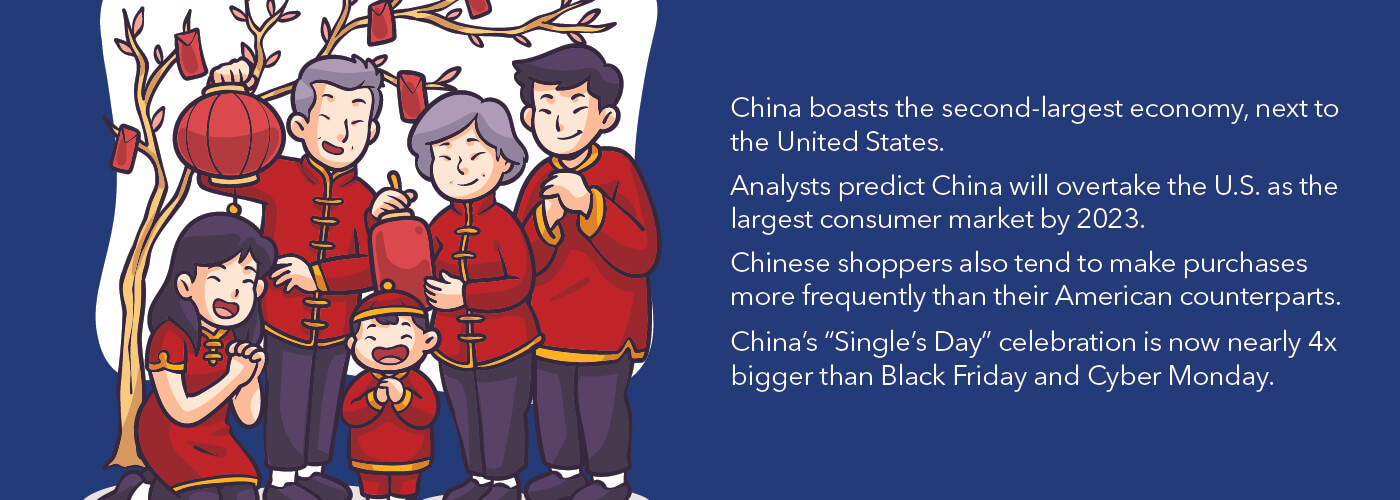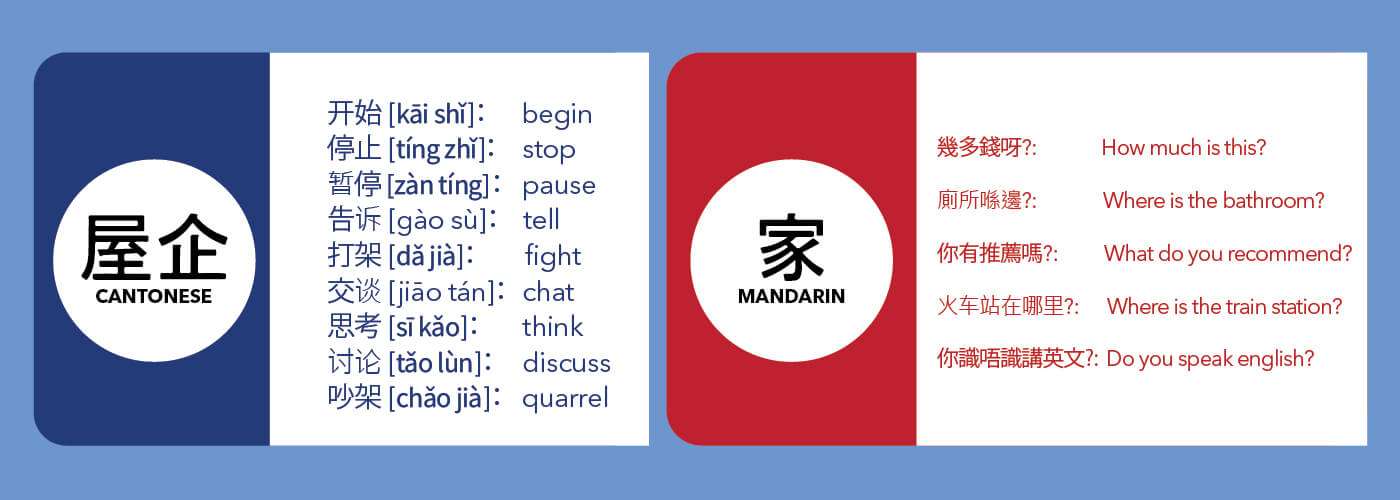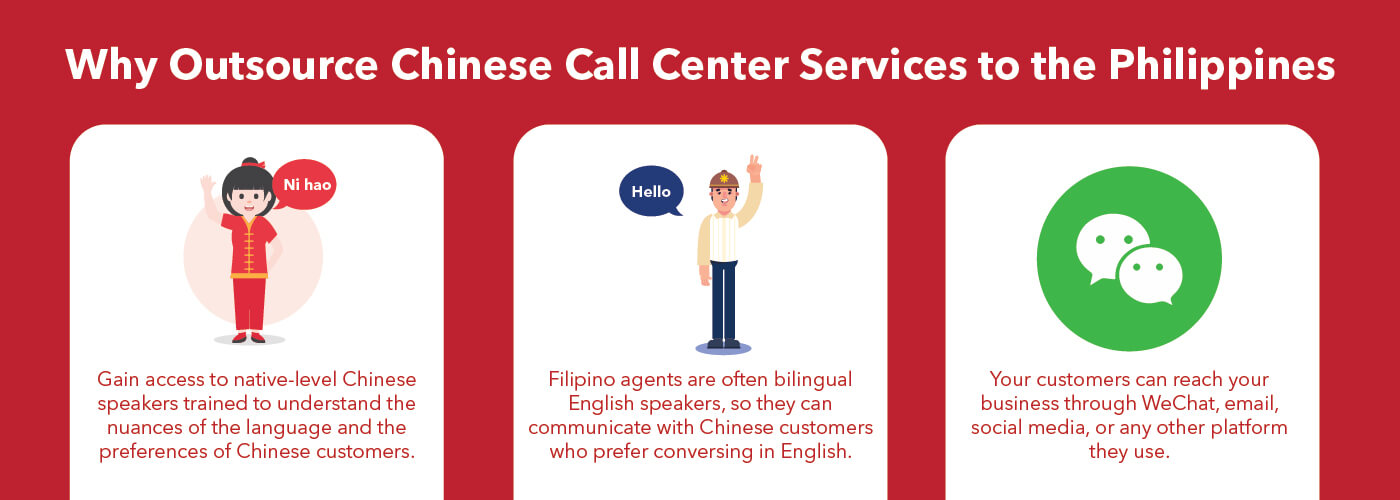
Businesses must adapt to the needs and preferences of their target consumers to thrive in today’s increasingly competitive and globalized world.
Here’s the thing: for many customers around the globe, it’s not enough for a company to assume they speak English; they prefer that their chosen brands converse with them in their native language.
This insight is especially true for the Chinese market, which has quickly become one of the most significant players in the global economy because of its massive population.
If you want to capture the hearts and minds of Chinese consumers, you must first speak their language. And this is precisely what a Chinese call center can help you do.
Why Cater to the Chinese-Speaking Market

Tap Into One of the World’s Largest Consumer Markets
As the world’s most populous country, China boasts the second-largest economy, next to the United States. It also has arguably the biggest consumer market.
Industry analysts predict China will overtake the U.S. as the largest consumer market by 2023. As the U.S. market grows by 38%, China’s economic growth is expected to double in the same period.
In addition to the vast number of consumers in the country, Chinese shoppers also tend to make purchases more frequently than their American counterparts.
To illustrate how much Chinese customers love to shop, let’s look at a popular annual event in the country. Every November 11, people in China celebrate “Single’s Day,” the world’s biggest annual shopping event catering to folks who are “relationship-free and proud of it.”
The revenue generated during this single, 24-hour event is now nearly 4x bigger than Black Friday and Cyber Monday, considered the two busiest shopping days in the U.S. During “Single’s Day,” online sales through Alibaba, China’s most popular e-commerce website, has grown from $6 billion in 2013 to over $25 billion in only four years!
Chinese Customers Prioritize Brands That Understand Their Culture
Many global companies may be tempted to enter the Chinese consumer market without changing their products, services, or customer service strategies. However, the truth is that localization may be the key to improving your customer experience in China.
According to a McKinsey research study, China offers immense growth opportunities worldwide as long as companies are willing to learn and understand the preferences and nuances of this consumer market.
As more foreign businesses attempt to enter the market, many Chinese people find themselves with a wealth of options at their disposal. As such, they have become more discriminating when selecting brands.
To make more sales and win the hearts of your Chinese clients, you will have to make an effort to understand their culture, including offering customer service in their native language.
Chinese as a Vital Global Business Language
Around the globe, there are approximately 1.15 billion Chinese native speakers. “Chinese,” as we know it, is a macro language consisting of different dialects, including Mandarin and Cantonese.
Studies have found that over 900 million people worldwide speak Mandarin, while about 84 million are native Cantonese speakers.

Although more people speak Mandarin, Cantonese is seen as a powerhouse global business language. In addition to being spoken in parts of mainland China, Cantonese is the official language of Hong Kong, one of Asia’s leading financial centers.
By offering Chinese customer service, you are boosting your company’s overall globalization strategy, opening the doors of business beyond your borders and toward one of the world’s most lucrative markets.
Additionally, understanding these Chinese languages can help facilitate more long-term business relationships in the region. Making an effort to speak Mandarin and Cantonese can help you navigate China’s business world confidently, easily translating documents, negotiating contracts and deals, and preventing misunderstandings.
Why Outsource Chinese Call Center Services to the Philippines

Provide customer service in Mandarin, Cantonese, and English.
According to one study, only 19% of companies provide multilingual customer support, but 60% of customers expect to be served in their native language. This research illustrates a disconnect between what organizations offer and what consumers expect from their chosen brands.
If your company wants to meet the needs of your Chinese clients and gain a competitive edge in the global market, consider outsourcing multilingual support to reputable call centers in the Philippines.
Outsourcing to a Chinese call center based in the Philippines accomplishes two things: First, you gain access to native-level Chinese speakers trained to understand the nuances of the language and the preferences of Chinese customers.
Second, Filipino agents are often bilingual English speakers, so they can communicate with Chinese customers who prefer conversing in English. In addition to providing customer service, a Philippine-based call center team can usually also take on technical support, content moderation, and other back-office services.
Handle omnichannel customer support, especially for commonly used social media platforms in the Chinese market.
In the past, customers could only reach out to their chosen brands by calling them over the phone. Today, many customer service channels are available for every consumer preference, from email to social media to live chat.
Chinese consumers, in particular, rely on social media apps for their e-commerce activities. As an example, WeChat is an integral part of daily life for many Chinese people. They count on the app for ordering food deliveries, paying bills, booking taxi rides, and many other purchase-related tasks.
According to Statista, 54% of Chinese users spend at least 10 to 30 minutes on the WeChat app daily. Corporations trying to cross-sell products or services to China also reported that WeChat was crucial to maintaining their business operations and overall competitiveness.
By partnering with the right provider of Chinese call center services, your customers can reach your business through WeChat, email, social media, or any other platform they use. For example, SuperStaff, a call center based in the Philippines, offers multilingual and omnichannel support.
Improve your brand’s online reputation among Chinese consumers.
For companies to find success in China, it’s imperative to prioritize word of mouth. Once Chinese customers become enamored with your products and services, their chances of recommending your brand to their friends and family are reasonably high.
One study found that 64% of Chinese consumers say word-of-mouth influenced their purchase decisions. A different survey observed that 66% of Chinese clients relied on product recommendations from trusted people and loved ones, while only 38% of their U.S. counterparts did the same.
If you’re hoping to improve your brand’s reputation in China and foster word-of-mouth referrals, working with a call center in the Philippines can be your best bet.
Filipino call center agents are known for being empathetic, kind, and hard-working, making them ideal brand ambassadors. Because of the Philippines’ strong historical and cultural ties with China, many Filipinos are already familiar with Chinese traditions and customs, making them ideally suited for Chinese-speaking customer service.
How to Find the Right BPO Partner for Chinese Call Center Outsourcing
Setting up a Chinese-speaking customer service team in-house can be tricky, especially when no one in your current team can handle the challenge. In this case, it’s better to work with a professional BPO partner with highly trained agents well-versed in both the Chinese language and culture.
SuperStaff offers a wide range of multilingual support services, including Mandarin and Cantonese. By partnering with us, you can improve your customer communication strategy, expand your reach and influence in the Chinese-speaking market, and gain a competitive edge while keeping your overhead costs low.






